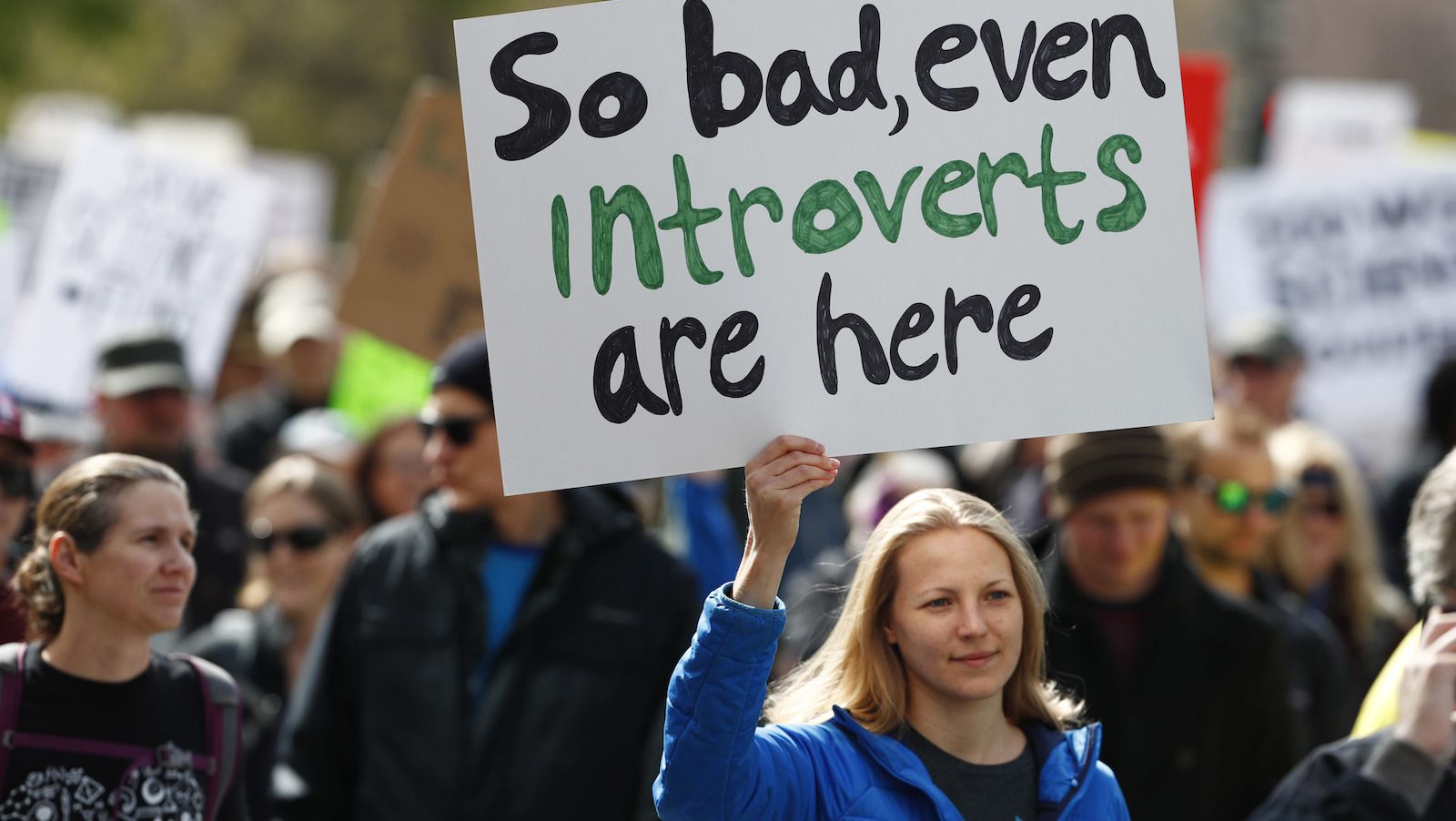Tuesday
My favorite sign from the various marches for science that occurred this past weekend read, “So bad even introverts are here.” In my experience with scientists, most would rather be in their labs than out protesting. They believe that seeking out truth should be above politics.
The sense of being above others can invite charges of elitism that are sometimes warranted. I think of the special friendship between two Victorian scientists in The French Lieutenant’s Woman:
He eyed Charles more kindly.
“A Darwinian?”
“Passionately.”
Grogan then seized his hand and gripped it; as if he were Crusoe, and Charles Man Friday….They knew they were like two grains of yeast in a sea of lethargic dough—two grains of salt in a vast tureen of insipid broth.
Our two carbonari of the mind—has not the boy in man always adored playing at secret societies?—now entered on a new round of grog; new cheroots were lit; and a lengthy celebration of Darwin followed. They ought, one may think to have been humbled by the great new truths they were discussing; but I am afraid the mood in both of them—and in Charles especially, when he finally walked home in the small hours of the morning—was one of exalted superiority, intellectual distance above the rest of their fellow creatures.
Elitist or not, Charles and Grogan would have seen politics as necessary in Victorian England to give science its proper due. Since then, however, science has largely won out over theology, allowing scientists to bask in the illusion that they can keep their hands clean. With the religious right having put their candidate in the White House, those days have come to an end.
The need for scientists to enter the political arena is made clear in Barbara Kingsolver’s Flight Behavior. Entomologist Ovid Byron, studying a climate-induced crisis within the monarch butterfly population, tries to limit the scope of his responsibilities. Protagonist Dellarobia is not so sure:
“We cannot jump to conclusions. All we can do is measure and count. That is the task of science.”
It seemed to Dellarobia that the task of science was a good deal larger than that. Someone had to explain things. If men like Ovid Byron were holding back, the [television reporter] Tina Ultners of this world were going to take their shots.
Byron is right that the measuring and counting have to be accurate and peer reviewed. The necessary support for their work will not be forthcoming, however, if they don’t convince people of its value.
With climate change, they have an uphill battle. Byron understands that scientists can’t always deliver what the public wants:
He avoided meeting her eye. “We should be physicians, or some kind of superheroes saving the patient with special powers. That’s what people want.”
She didn’t reply, wondering if he was right about that. Probably it was true. People resisted hearing the details of a problem, even when it was something personal, like their own cancer. What they wanted was a fix.
By the same token, scientists can’t deliver what television wants, as the following confrontation between Byron and Ultner makes clear:
“The station has gotten about five hundred e-mails about these butterflies, almost all favorable. Is this really where you want to go with this segment? Because I think you’re going to lose your audience.”
Ovid looked genuinely startled. “I am a scientist. Are you suggesting I change my answer to improve your ratings?”
When Ultner complains that she can’t get a good “visual” for a story about climate change, Byron explodes:
“You have a job to do, woman, and you are not doing it.” Ovid’s head dropped forward and his eyes narrowed, a posture that stunned Dellarobia. She’d never figured him for a schoolyard fighter. He took a step forward, leveling his finger like a blade toward her chest, inciting in Tina an equal and opposite step backward. “Fire is an excellent visual, Tina. So are hurricanes, and floods. The whole damn melting Arctic.” They edged into the part of the lab where the stuff was piled from the portion they’d cleaned up. “How will you feel ten years from now, when a serious lot of the farms in the world don’t have a damn rainy season anymore? And you were party to that?”
Byron’s speech, of course, doesn’t make it onto the television news, but someone records it, puts it on YouTube, and it goes viral. Byron becomes political in spite of himself.
Dellarobia, who herself may some day become a bridge between the science community and rural America, also persuades Byron to talk to school children, another way of getting the word out.
I teach Flight Behavior in Introduction to Literature, where it is not uncommon for half the class to be biology, biochemistry, and environmental studies majors. We talk about the need for scientists to step outside of their silos and regard their work in a larger context. They see how it may be necessary for them to talk to people with very different views of the world, including potentially conservative evangelicals in Appalachian Tennessee. We discuss how a liberal arts education will aid them.
According to the novel, extreme weather events can create an opening for scientists to make their voices heard. They just have to take advantage. Introverts must leave their labs.
